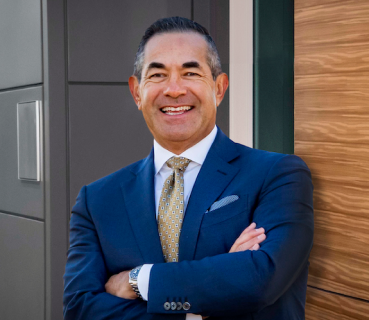Need Tailored Business Continuity Insights?
Contact Us Now for Personalized Guidance!
Finding a good business continuity management consultant can be hard. Today’s post is a list of 12 steps to help you find the right BCM consulting firm for your engagement.
The key challenge in hiring a BCM consultancy is not determining which firm is the best but which is the best fit.
12 Steps for Finding the Right BCM Consulting Firm
Follow these 12 steps to help you identify and hire the right BCM firm for your company and engagement:
1. Learn what BCM is and how it needs to be applied at your organization. It is critical you know what you are asking for, why it’s important, and how it will impact your organization.
2. Determine what you need from a BCM consultant. Do you want the consultant to perform a Current State Assessment? Conduct Business Impact Analyses? Write Business Continuity Plans?
3. Write a request for services, ensuring that your request is clear and logical. Everyone at the organization with authority over the engagement needs to be in alignment with the written request. A clear, consistent request increases the chances that proposals will be responsive, enabling the comparison of apples to apples.
4. Obtain budget approval for the project. Ensure your senior management is prepared for the expense of hiring a BCM firm.
5. Define how you will select the finalists and choose a winner. Create a simple formula based on what is important to you to help determine the best firm. For example, you could prioritize experience, price, or capability.
6. Establish the timeline for consultant questions, company responses, interviews and final selection. List the dates and times so consultants know what to expect and when.
7. Gather the information the consulting firms will need in order to assemble responsive proposals. This might include documents such as organization charts, audit findings, and information on network configurations.
8. Prepare yourself and your colleagues for the process of working with an outside consultant. Cooperation is essential for the success of a BCM engagement. The greater good of the organization is served when all of the parties involved are pulling together.
9. Define a reasonable timeframe for completion of the engagement. The consultant needs to know the start and end dates. Realisim is important in setting the timeframe.
10. Assign or obtain an in-house project manager to work with the consulting firm. This person can help the firm navigate the organization, ensuring that tasks are completed in a timely manner.
11. Research business continuity consulting firms and identify three to five that look like a good fit. Review consulting firm websites and seek suggestions from people in your network. Develop a short list of candidate firms whose expertise seems to align with your needs.
12. Assess the consulting firms and their proposals by looking at the following key criteria:
- Expertise. Does the team have deep and broad experience across many industries? Has it worked with firms of a variety of sizes? Has it been in business for many years? Depth and breadth of experience develop greater knowledge and more efficient problem-solving. The company should have solid experience in your industry.
- Capabilities. Is BCM the core competency of the firm? Can the firm work across all disciplines of the BCM lifecycle?
- Partnership mindset. Will the consultant merely go through the motions or will they work with you as a partner, taking your interests to heart? Will they tell you if your need for services is less than that envisioned in the contract? Will they bill you for every minute spent working or thinking about your engagement?
- Systems and tools. Does the consultant have cloud-based systems and tools that will permit easy access to data during and after the engagement? Will the consultant charge for use of their cloud-based tools during the engagement?
- Flexibility. Is the team able to quickly adapt to changing situations during the engagement while still providing the deliverables, or adjusting them as needed in a timely manner?
- Pricing. Is the pricing fair and consistent with the market, the complexity of the engagement, and the capabilities of the firm?
- References. Does the consultant have verifiable references (past and present) across industries who can testify to their successful completion of BCM engagements and production of deliverables?
Getting Off to a Good Start
Finding and hiring the right business continuity consulting firm for your engagement can be challenging. Following the steps above will help you find a good BCM partner. It will also help your engagement get off to a good start and increase the likelihood that it will meet your organization’s needs and strengthen its resiliency.
Further Reading
For more information on hiring a business continuity consultant and other hot topics in BCM and IT/disaster recovery, check out these recent posts from BCMMETRICS and MHA Consulting:
- Critical Assistance: How a Consultant Can Strengthen Your Crisis Management Program
- Helping Hands: What BC Consultants Do For You
- Client’s Guide to Hiring a BC Consultant
- Help, I Need Somebody: 4 Times When You Should Hire a BC Consultant
- Getting the Most Out of Your BCM Consultant: Do’s and Don’ts
- Good Client, Bad Client: How to Treat Your BCM Consultant and Why It Matters
- Dancing the Tango with Your Business Continuity Consultant

Michael Herrera
Michael Herrera is the Chief Executive Officer (CEO) of MHA. In his role, Michael provides global leadership to the entire set of industry practices and horizontal capabilities within MHA. Under his leadership, MHA has become a leading provider of Business Continuity and Disaster Recovery services to organizations on a global level. He is also the founder of BCMMETRICS, a leading cloud based tool designed to assess business continuity compliance and residual risk. Michael is a well-known and sought after speaker on Business Continuity issues at local and national contingency planner chapter meetings and conferences. Prior to founding MHA, he was a Regional VP for Bank of America, where he was responsible for Business Continuity across the southwest region.


